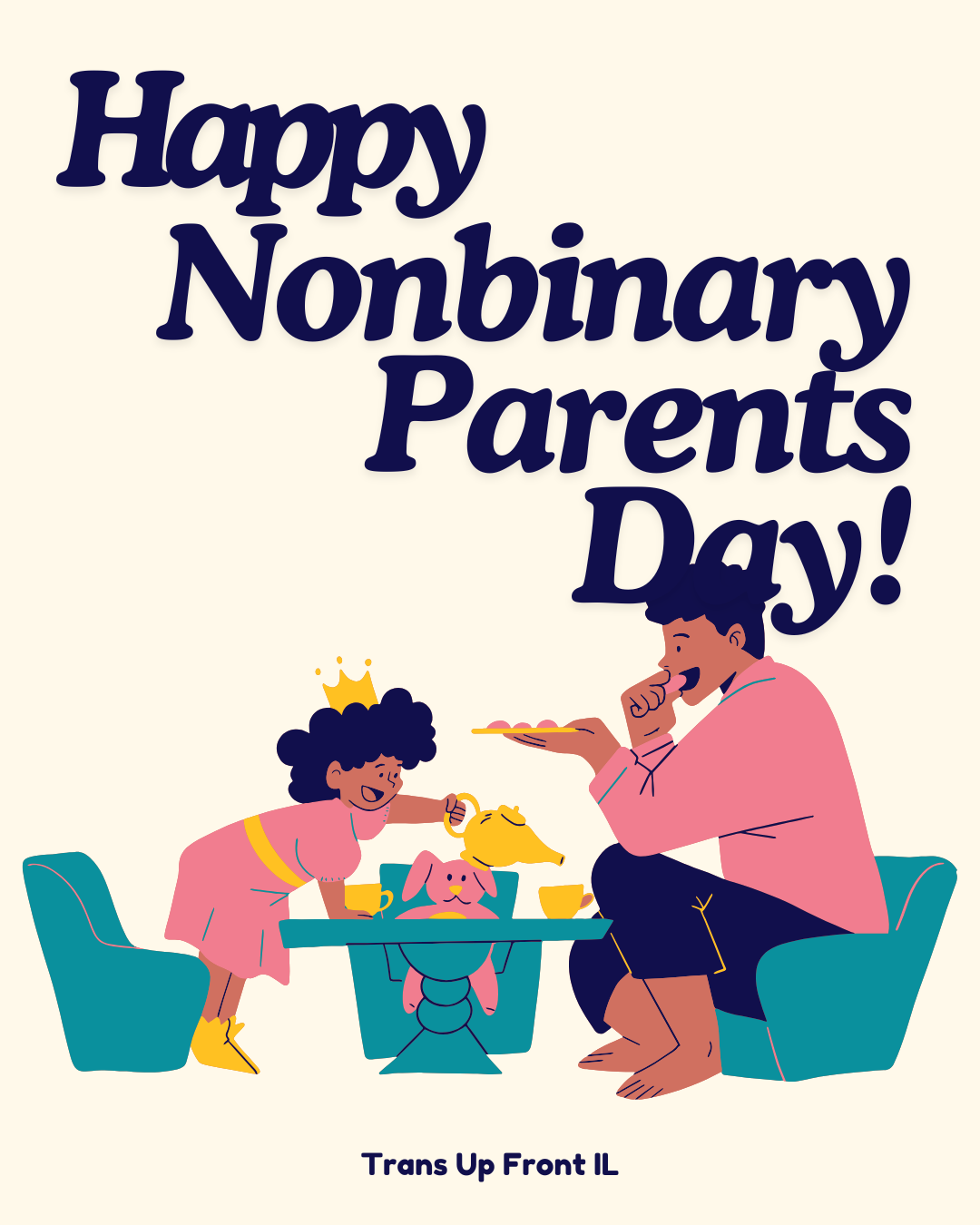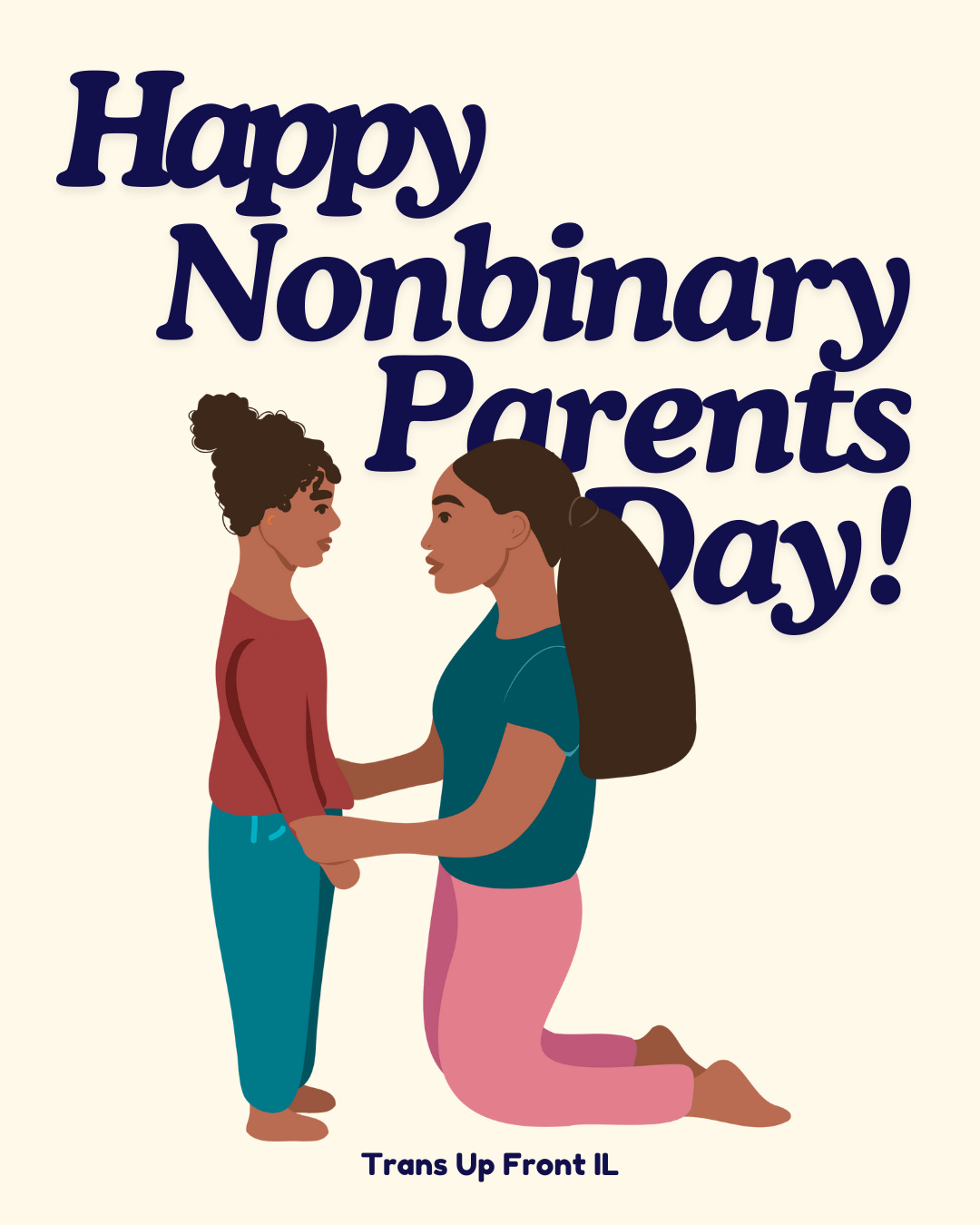As a parent whose identity falls outside of the binary, holidays like Mother’s Day and Father’s Day miss the mark, leaving many of us feeling un-celebrated. We may participate in family events like barbecues or dinners, but with neither of the more widely acknowledged holidays including our identities, we spend time celebrating our own parents and grandparents without having a day that is for us.
In 2017, nonbinary performer and educator, Johnny Blazes, saw the gap and started Nonbinary Parents Day to celebrate those parents whose identities fall outside of the typical Mother’s and Father’s Day celebrations. Over the last 8 years, the day has grown in visibility and is celebrated by more and more nonbinary and gender nonconforming people.
In honor of Nonbinary Parents Day, we should all work on expanding our language to be more inclusive of ALL parents and caretakers, even beyond binary and nonbinary parents. Too often, teachers, coaches, and other people in charge of our kiddos say things like “moms and dads” when speaking to children, when the word “parents” would encompass both of those identities plus nonbinary parents. Beyond that, SO MANY children are taken care of by other adults in their lives.
Imagine being a child in the foster system, a child who is cared for by their grandparents or an older sibling, a child with only one parent, or a child with a nonbinary parent. A teacher says to tell your mom and dad about an upcoming event. As that child, does this include you if you don’t have a mom and dad? Does hearing this hurt you or remind you of something difficult in your life?
My favorite replacement phrase is “your adult” because it can mean so many things! “Go find your adult” is an excellent way to end a play group or a sports practice because it can include the child’s babysitter, grandparent, or anyone else who would be responsible for transporting them to and from events. “Your adult” or even “your grownup” leaves out the gendered identifier and helps all children feel included.
Let’s make sure that we look around in our lives and in our families and find the people who aren’t being celebrated enough. Let’s find a way to include and celebrate everyone, regardless of their family structure and identity.









This is another wonderful example of how inclusion fought for by marginalized communities benefits everyone. Kids not taken care of by their biological parents or who has other caregivers with them will feel included by “your grownup”! Inclusion means all! Inclusion hurts no one, but benefits all! ❤️🧡💛💚💙💜